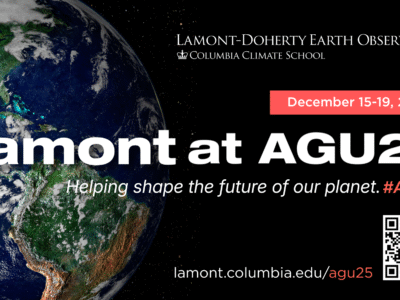 After the intensity and optimism of last year’s Copenhagen climate meetings, the U.N. climate talks have returned to a less highly charged, lower key set of diplomatic exchanges. Last week Lisa Friedman, Evan Lehmann and Jean Chemnick of Climatewire reported on the lack of attention being paid to the conference by the United States Congress, and concluded that:
After the intensity and optimism of last year’s Copenhagen climate meetings, the U.N. climate talks have returned to a less highly charged, lower key set of diplomatic exchanges. Last week Lisa Friedman, Evan Lehmann and Jean Chemnick of Climatewire reported on the lack of attention being paid to the conference by the United States Congress, and concluded that:
“The apathy is palpable, and a far cry from the atmosphere last year when President Obama and the leaders of more than 100 other nations descended in droves upon the chilly Danish capital of Copenhagen to hawk their views at the climate circus. That conference saw U.S. congressional champions of cap-and-trade legislation as well as skeptics jostling to share their views on the prospects for American domestic action and a new international treaty.”
While the lack of media and celebrity reduces the amount of world focus on the meetings, it appears that modest, but significant steps are being taken in the prevailing, calmer environment. Progress on avoided deforestation seems possible, along with what have been termed “building blocks” toward an agreement.
I think these international discussions have great value, but they need to be placed in context and seen for what they are. Most of the action in climate change involves the gradual transfer to a more energy efficient, fossil fuel free economy. The issue is how gradual or rapid the transition will actually be. Government action will speed this transition, especially as nation states learn that a fossil fuel free economy will ultimately be more efficient and permit a lower proportion of national GDP to be devoted to the costs of energy. Public subsidies for smart grid technologies along with feed in tariffs can encourage innovative and local power generation. A large scale electric auto industry, in which car batteries are typically charged while we sleep, can make the entire energy system more efficient. The storage capacity of millions of car batteries might someday provide a way to meet peak load power demands as car batteries not in use can be drawn on for power during hot August afternoons.
It is true that the nearly seven billion people now on the planet are destroying ecosystems and exhausting natural resources at a ferocious pace. We need to make the transition to a high throughput, high output global economy that is built with far more attention to the planet’s sustainability. We need to develop the field and practice of sustainability management. But we also need to do this while simultaneously eliminating global human economic poverty. The extreme imbalance of wealth and poverty in this world is politically destabilizing and ethically indefensible. The 20th century taught us that the problem is not extreme wealth, but extreme poverty. The goal is not to equalize wealth but to ensure adequate food, shelter, clothing, health services and the opportunity for the achievement of human potential. The argument is about the role of government in ensuring that wealth is created and maintained.
Government has long had a role in building infrastructure and other public goods that provide the conditions for private production. This is the case in transportation, agriculture, science and technology, energy production and transmission as well as natural resource preservation, development and regulation. The international dynamic at play in this equation should not be ignored. National governments can do a great deal on their own and within their own borders, but in a globally and interconnected economy, with a world-wide media, weapons of mass destruction and global scale environmental problems- the need for international cooperation has never been greater. Meetings such as the one in Cancún keep alive the search for areas of mutual self interest and agreement among nations.
But the real action in the energy transition and in climate policy and management must be at the national and local level, and over the past decade, that has been taking place. The political pressure on the fossil fuel industry will continue to intensify as the extraction of fossil fuels from the planet becomes more destructive. Hydrofracking for gas, mountain top removal for coal and deep sea drilling for oil are expensive extraction methods that place fragile ecosystems at risk. The issue is how great is the risk and how necessary the fuel is to our economy. Right now the energy is essential to the economy, and as I noted earlier, economic growth is essential to political stability. We can argue about the degree of risk, but anyone who has ever looked at the management and operation of complex production technologies will tell you that human error and technological malfunctions are inevitable. There are no perfect technologies any more than there are any perfect human beings. The risk is always greater than zero, and given our dependence on the productive health of the planet’s ecosystems, it would be far better if we figured out a less risky way of powering our economy.
Which brings us back to Cancún; While Copenhagen was a media extravaganza and a world-wide teaching moment on the problem of climate change, it created unrealistic political pressure for a rapid and magical solution to the climate problem. The transition to a fossil fuel free economy will be a long slog through the mud. But a critical step has been taken. A fossil fuel free economy is an increasingly wide spread vision and goal throughout the world. Energy is a problem we know we need to solve. I may be overly optimistic, but I think the transition process is well underway.
Technological change is often unpredictable and rapid. Today there are about five billion cell phones in the world while twenty years ago we didn’t even know we needed these things. At the start of the twentieth century, one of the worst environmental problems faced in New York City was the amount of horse manure accumulating on the streets. The horseless carriage solved that problem , while creating many new problems. I hate to be dependent on a technological fix, but technology caused the climate problem, and technology will need to solve it. We will solve the energy problem when fossil fuel energy is more expensive than renewable energy. Since fossil fuels by definition are finite and renewable fuels are not, sooner or later this transition will take place. The question is when.



